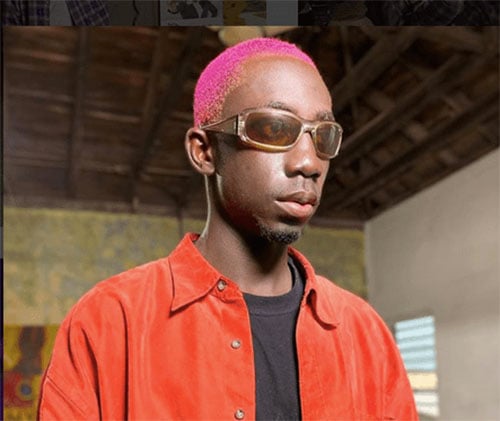Bosom P-Yung, the Ghanaian musician renowned for his hit song “Ataa Adwoa,” has vehemently refuted claims circulating on social media that his music career is on the decline. He asserts that these criticisms are part of a concerted effort to sabotage his progress and reputation, but he remains resolute and confident that such attempts will ultimately fail. In an April 15, 2025, post on the social media platform X (formerly known as Twitter), the artist directly addressed a viral tweet that included him on a list of musicians perceived to have “fallen off.” He dismissed the assertion as a malicious agenda designed to negatively impact his career trajectory, emphasizing the deliberate and persistent nature of these criticisms. Bosom P-Yung believes this campaign aims to manipulate public perception and ultimately manifest their desired outcome of his downfall.
The artist further highlighted a pattern of similar negativity directed towards other prominent Ghanaian musicians, citing Black Sherif and Sarkodie as examples. He observed that the same tactics employed to discredit him are being used against these established artists, suggesting a broader trend of targeted attacks within the Ghanaian music scene. This observation underscores his belief that these criticisms are not genuine assessments of his music but rather malicious attempts to undermine his success. He implies that these attacks stem from a place of envy or competitive rivalry, rather than genuine concern about the quality of his music. By drawing parallels with the experiences of other successful musicians, Bosom P-Yung positions himself within a larger narrative of artists facing unwarranted criticism.
Bosom P-Yung, whose real name is Prince Ofori, expressed unwavering faith in his artistic journey. He declared his continued strength and activity in the music industry, emphasizing that his career is far from over. He challenged those criticizing him to simply state their dislike for his music rather than resorting to veiled accusations of decline. This direct approach underscores his confidence and encourages open and honest feedback, while simultaneously dismissing the insinuation that his career is faltering. He essentially challenges the credibility of these criticisms by suggesting they stem from personal bias rather than objective assessment.
The artist’s response highlights a common challenge faced by musicians in the digital age: navigating public opinion and online criticism, particularly within the often volatile landscape of social media. The instantaneous and widespread nature of online platforms can amplify both positive and negative commentary, making it challenging for artists to control their narratives and defend themselves against potentially damaging claims. This incident involving Bosom P-Yung illustrates the potential for online discussions to devolve into targeted attacks, impacting an artist’s reputation and mental well-being.
Bosom P-Yung’s firm rebuttal also underscores the importance of resilience and self-belief in the face of adversity. By directly addressing the criticisms and emphasizing his continued commitment to his music, he demonstrates a refusal to be defined by the negativity directed towards him. His confidence in his artistic trajectory suggests a strong sense of self-worth and a determination to persevere despite the challenges he faces. This resilience is crucial for navigating the pressures of the music industry and maintaining longevity in a constantly evolving landscape.
The incident involving Bosom P-Yung serves as a microcosm of the broader conversation surrounding online criticism and its impact on artists. It raises questions about the responsibility of social media platforms in curbing targeted harassment and the role of fans and media in shaping public perception. While constructive criticism is essential for artistic growth, the line between honest feedback and malicious attacks can often become blurred in the online sphere. Bosom P-Yung’s experience underscores the importance of open dialogue about the challenges artists face in the digital age and the need for a more supportive and respectful online environment. The artist’s response also emphasizes the importance of artists maintaining a strong sense of self and refusing to be silenced or discouraged by unwarranted criticism.














